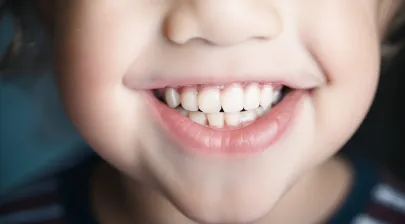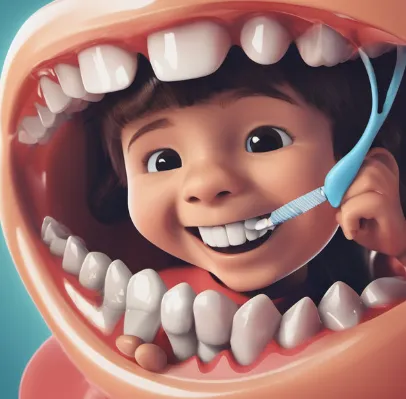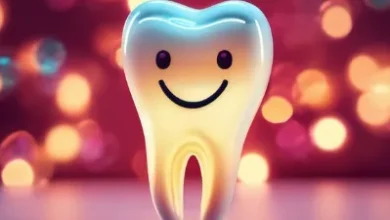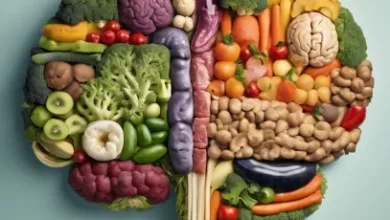Tiny Teeth, Big Impact: Why Tiny Teeth, Big Impact: Why Baby Teeth Care Matters

Have you ever wondered why taking care of your child’s baby teeth is so important?Tiny Teeth You might think, “They’re just going to fall out anyway, right?” Well, you’d be surprised! Baby teeth, while temporary, play a crucial role in your child’s overall health and development. In this blog post, we’ll dive into the world of baby teeth care, exploring why it matters, how to establish healthy habits, and how to make dental visits a fun experience.
Why Baby Teeth Matter: More Than Just Placeholders
Baby teeth may seem insignificant, but they serve several essential functions:
Chewing and Eating: Baby teeth help your child chew food properly, aiding in digestion and overall nutrition.
Speech Development: These tiny teeth play a role in the development of clear speech and pronunciation.
Jaw Development: Baby teeth help guide the growth and development of your child’s jaw, making way for permanent teeth to erupt in the correct position.
Placeholders for Permanent Teeth: Baby teeth act as space savers, ensuring that permanent teeth have room to grow in.
Neglecting baby teeth care can lead to serious consequences, such as:
Tooth Decay: Cavities in baby teeth can cause pain, infection, and premature tooth loss.
Speech Problems: Missing or decayed baby teeth can affect your child’s speech development.
Jaw Development Issues: Early tooth loss can disrupt the natural growth of the jaw, leading to crooked or crowded teeth.
The ABCs of Baby Teeth Care: A Simple Routine
Establishing a simple, effective oral hygiene routine is crucial for maintaining healthy baby teeth. Here are the basics:
Brushing: Start brushing your child’s teeth as soon as their first tooth erupts. Use a soft-bristled toothbrush and a small amount of fluoride toothpaste. Gently brush their teeth twice a day, morning and night.
Flossing: Once your child has two teeth touching, its time to start flossing. Use a gentle flossing tool designed for children and floss once a day.
Dietary Habits: Limit sugary drinks and snacks, as they contribute to tooth decay. Encourage a diet rich in fruits, vegetables, and whole grains.
Regular Dental Checkups: Schedule regular dental checkups, checkups, typically every six months. These visits allow the dentist to monitor your child’s oral health, identify any potential problems, and provide preventive care.
Sugar Bugs Bugs Beware: Protecting Your Child’s Smile
Sugar is a major culprit in tooth decay. When bacteria in the mouth come into contact with sugar, they produce acids that erode tooth enamel. To protect your child’s smile, follow these tips:
Limit Sugary Drinks: Avoid sugary drinks like soda, juice, and sports drinks. WAter is always the best choice.
Choose Healthy Snacks: Opt for nutritious snacks like fruits, vegetables, and cheese.
Avoid Frequent Snacking: Frequent snacking exposes teeth to sugar and acid attacks.
Rinse Mouth After Meals: If you can’t brush immediately after a meal, have your child rinse their mouth with water to remove food particles.
First Dental Visit: A Milestone Moment
The first dental visit is a significant milestone in your child’s life. its a grate opportunity to introduce them to the dentist and establish a positive dental experience. Here are some tips to make the visit a success:
Choose a Child-Friendly Dentist: Look for a dentist who has experience working with children and who creates a welcoming and fun environment.
Prepare Your Child: Talk to your child about the dentist visit in a positive way. Explain what to expect and answer any questions they may have.
Practice Good Behavior: Role-play good dental behavior at home, such as opening wide for the dentist and sitting still during the exam.
Stay Calm and Positive: Your attitude will influence your child’s behavior. Stay calm and reassuring throughout the visit.
Creating Lasting Habits: A Family Affair
Incorporating good oral hygiene habits into your family’s daily routine can make a significant difference in your child’s oral health. Here are some tips to help:
Lead by Example: Children learn by observing their parents. Brush your teeth and floss regularly to set a positive example.
Make it Fun: Turn brushing and flossing into a game or sing a song to make it enjoyable.
Positive Reinforcement: Reward your child for good oral hygiene habits, such as brushing and flossing regularly.
Involve Your Child in Decision-Making: Let your child choose their own toothbrush and toothpaste to make them feel more involved in their oral health.

By understanding the importance of baby teeth care, establishing a solid oral hygiene routine, and making dental visits a positive experience, you can help your child develop a healthy smile taht will last a lifetime. Remember, small steps can lead to big rewards. So, let’s make baby teeth care a priority and give our children the gift of a beautiful, healthy smile.



